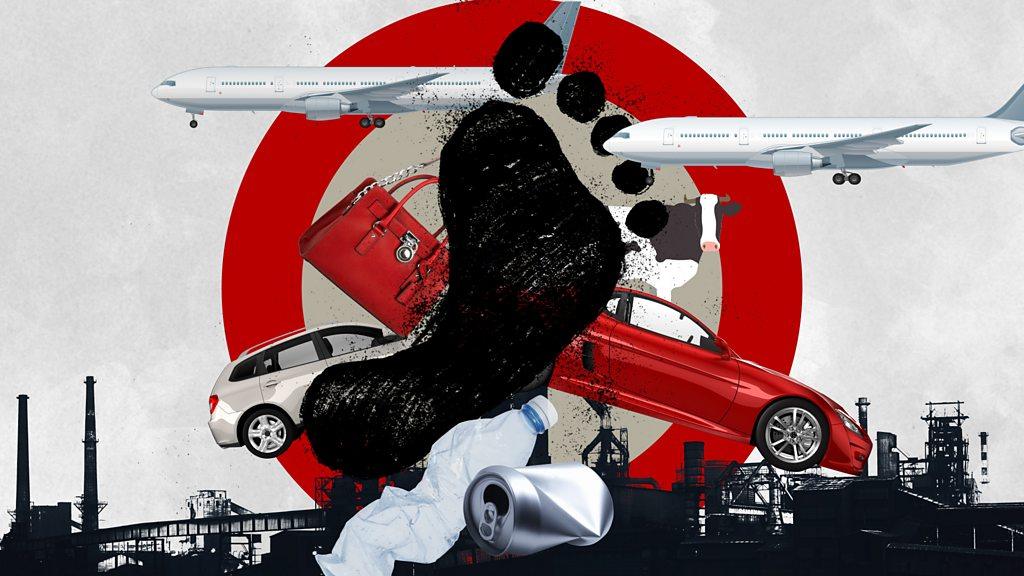Carbon: How calls for climate justice are shaking the world
- Published
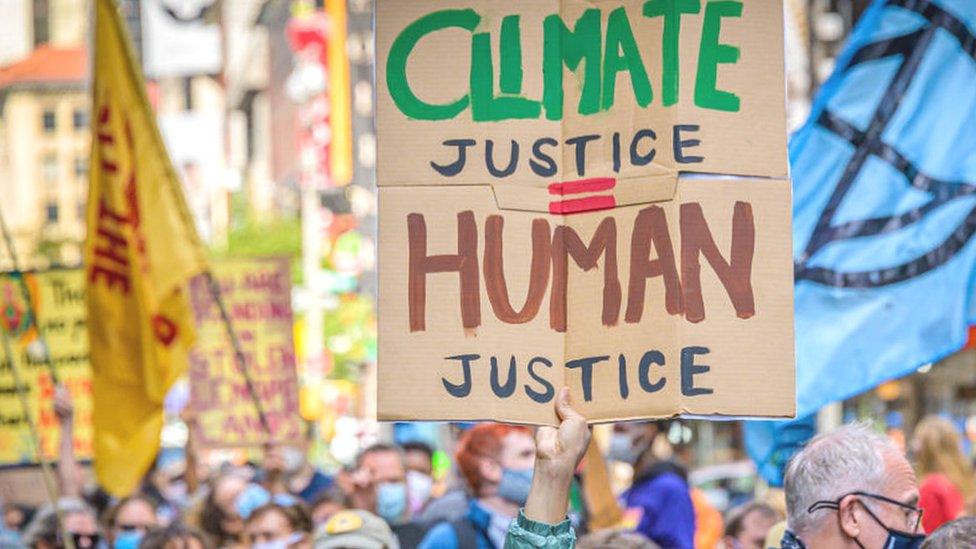
Young activists are breathing new life into the long-running debate over climate justice - the framing of global warming as an ethical issue rather than a purely environmental one.
When world leaders took to the (virtual) stage at President Biden's climate summit, they were given a gentle telling off by 19-year-old climate activist, Xiye Bastida.
"Solutions must be aligned with the fact that climate justice is social justice," she said, echoing the words of Greta Thunberg.
The Mexican-born teenager is among a new generation of climate activists drawing attention to environmental and social injustices they say are blighting lives worldwide.
Her words cut through the noise in a video that has been viewed more than a quarter of a million times.
Allow X content?
This article contains content provided by X. We ask for your permission before anything is loaded, as they may be using cookies and other technologies. You may want to read X’s cookie policy, external and privacy policy, external before accepting. To view this content choose ‘accept and continue’.
Harriet Lamb of the climate solutions charity, Ashden, says people have been talking about the problem of climate injustice for decades but young activists are giving it new momentum.
"It has undoubtedly changed the agenda," she says.
For her, climate justice is about making sure we address historic injustices over emissions, including the carbon footprint of the wealthy, whose lifestyles have contributed most to global warming.
At the same time, climate change is predominantly impacting those who've done the least to contribute to carbon pollution and who have the least resources to deal with it because they are living below the poverty line.
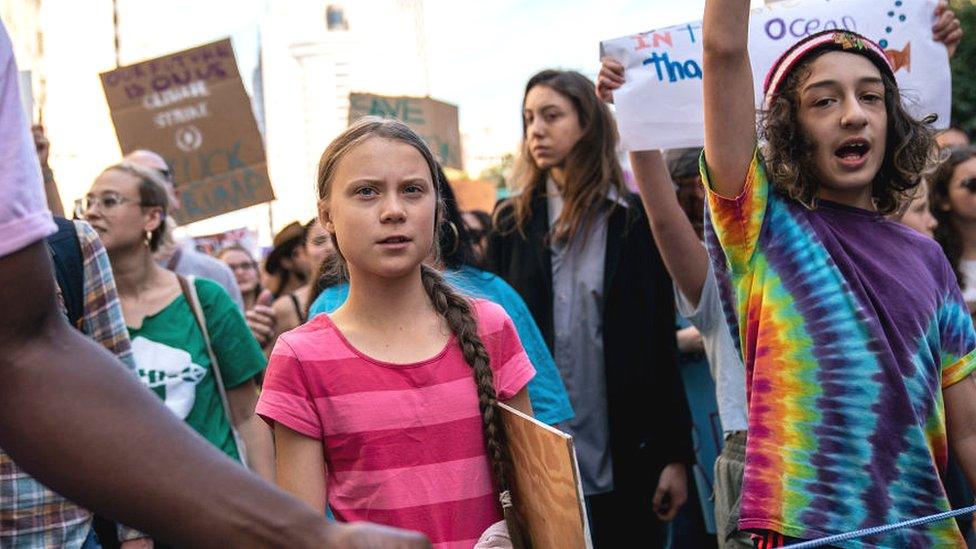
Greta Thunberg: 'We cannot separate social justice from climate justice'
The starkest inequalities are seen in the poorest countries of the world, where people leaving only a tiny carbon footprint are at the front line of climate chaos, from floods to ruined crops. But even in wealthy countries like the UK, there are warnings of carbon inequality.
Amy Norman, a researcher at the think-tank, The Social Market Foundation, says politicians need to level with voters on what the transition to net zero will mean for the way we live.
There's potential for a public and political backlash over issues of unfairness, she says, which could damage trust and ultimately the wider transition to net zero (removing as many emissions as we produce).
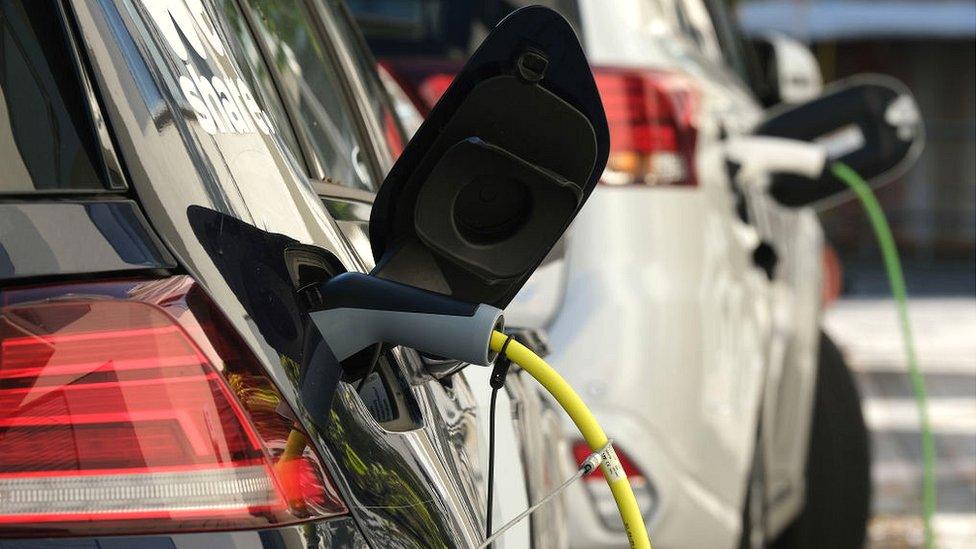
Electric cars are one well-known solution for climate change
"This is an entire economical, societal shift and transition that we need to make," she says.
"Politicians need to have the public on board and bringing them alongside - if you're hitting lower incomes where it hurts with their finances you're going to lose support quickly and especially if that's seen to be unfair."
Anyone driving around in a clapped-out car they rely on for the school run might well wonder how to afford a shiny new electric car. And if you live in a tower block, where would you even charge one? And those dreading a hefty bill to fix a faulty boiler will be shuddering at the thought of an expensive heat pump.
These are some of the issues politicians must wrestle with as they work out how to deliver on their promises for curbing emissions.
Amy Norman says there needs to be a package of support for low-income households to help meet the costs of electric vehicles and funding for local authorities to install public charging points.
Issues of climate justice are thrown into even sharper relief when looking at emissions through a global lens.
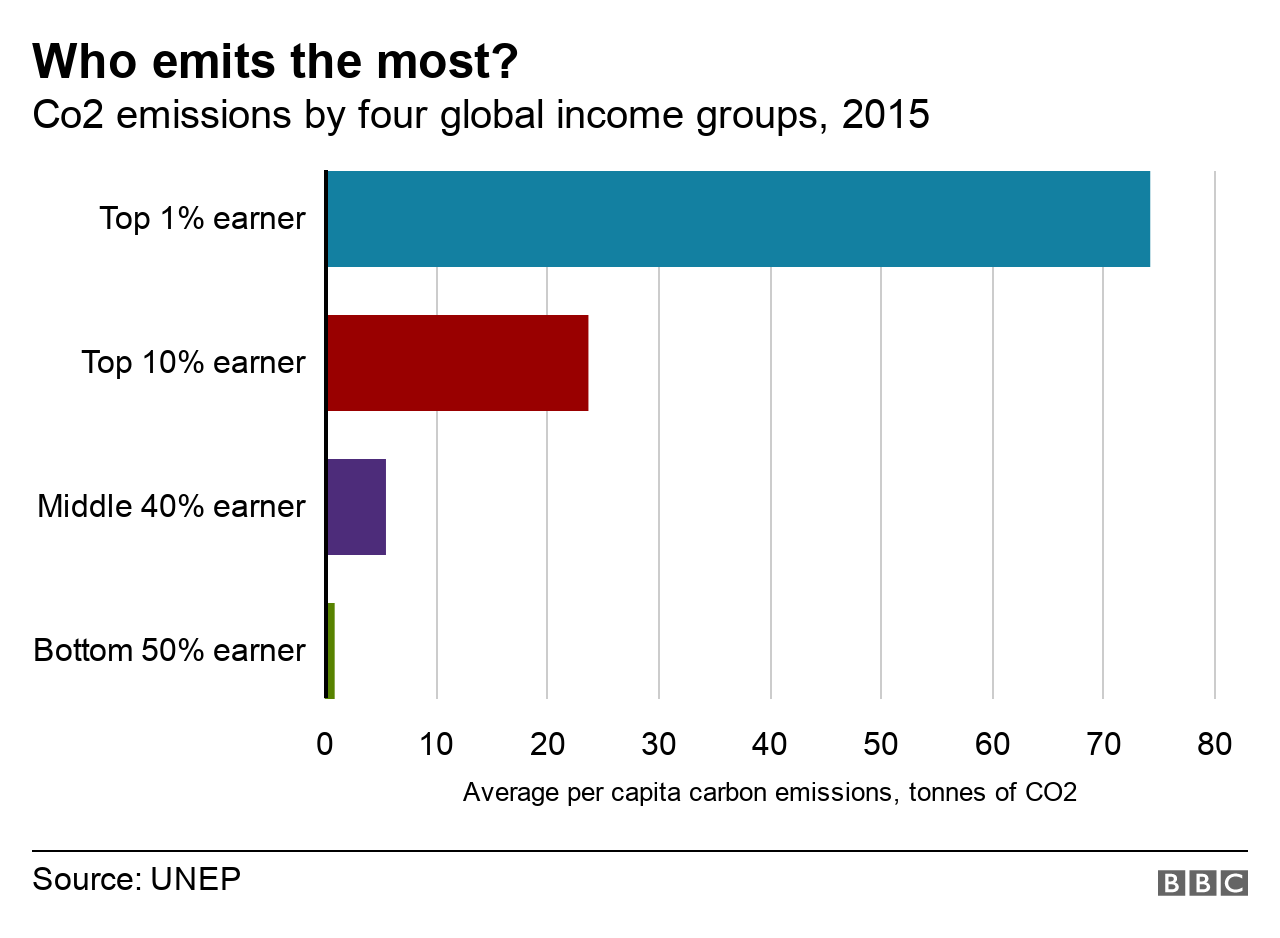

Studies show that the combined emissions of the richest 1% of the global population account for more than the poorest 50%.
The global south will bear the brunt of economic impacts from rising temperatures, with those on lower incomes more vulnerable to the likes of floods, drought and extreme heat.
In Nigeria, for instance, the poorest 20% of people are 50% more likely to be affected by a flood, 130% more likely to be affected by a drought, and 80% more likely to be affected by a heat wave than the average Nigerian. And in Bangladesh, India, and Honduras, poor people are losing two to three times more than the wealthy when hit by a flood or storm.
One recent study, external found that enacting policies to fight climate change will push an additional 50 million people into poverty by 2030.
Study researcher, Dr Bjoern Soergel of Germany's Potsdam Institute for Climate Impact Research, says the drive towards net zero could mean higher prices for food and energy, which will have a greater impact on the poor.
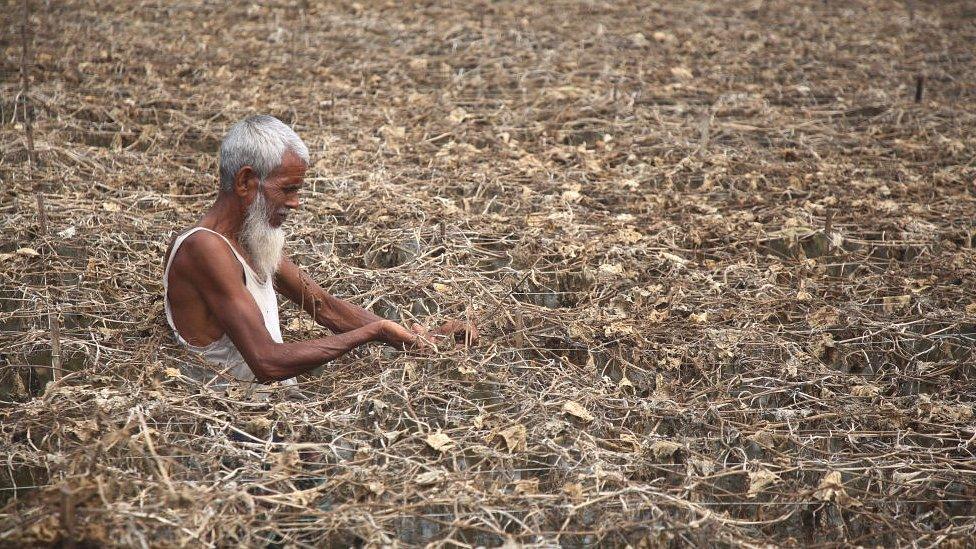
Bangladesh is exceptionally vulnerable to climate change
But he says there is a "win-win" situation by which you can protect the climate and reduce extreme poverty. This would involve carbon pricing - essentially a carbon tax on polluting fossil fuels - with governments re-distributing some of the profits on a per capita basis.
Richer countries would then need to give a fraction of the money to the countries where people live in extreme poverty.
"Making [climate policies] in an equitable way really needs to be at the core of climate action first of all because the currently rich industrialised countries are responsible for the large majority of emissions in the past," he says.
"They have contributed most to the issue so far. But also they have the biggest means to tackle the problem both in terms of financial resources and technology."
BBC Reality Check explains how to cut your carbon footprint
Harriet Lamb says there is a danger that measures designed to encourage cleaner, greener living might exacerbate existing socio-economic divisions and derail the drive towards a net zero world.
"We have to have exactly the right policies that tackle climate inequalities and social inequalities at the same time because the two are absolutely intertwined," she says.
And while people have been talking about the problem of climate injustice for decades, young activists are now giving it new momentum.
"This is not David against Goliath, which is the cliché representation of so much of civil society, this is Goliath slugging it out against Goliath," she says.
"I would not say the battle is yet won for those pushing for the dramatic action we need to ensure we do see climate justice but I would say the scales are beginning to tip."
Follow Helen on Twitter, external.
Related topics
- Published22 April 2021
